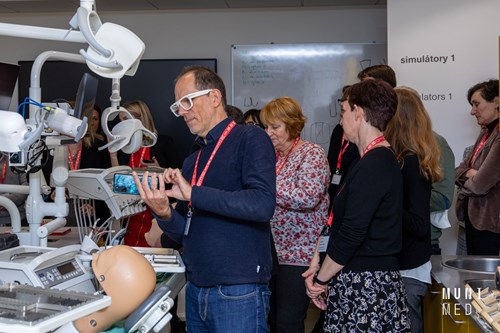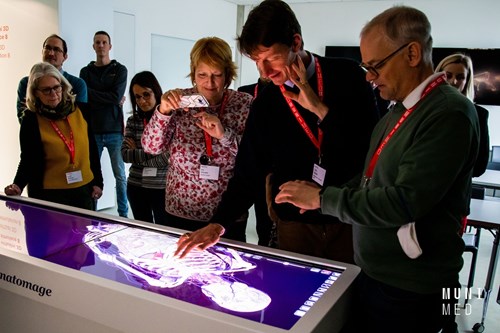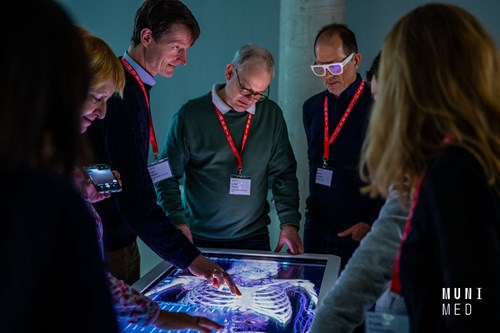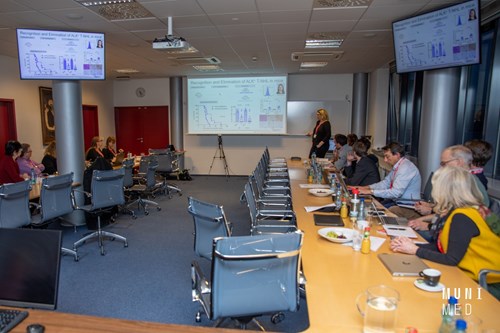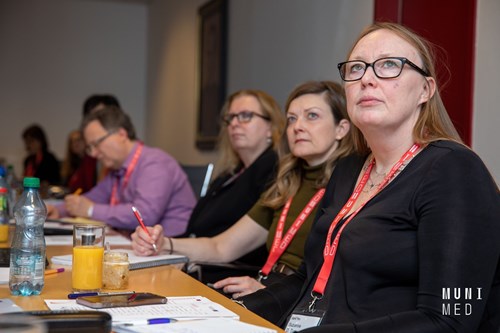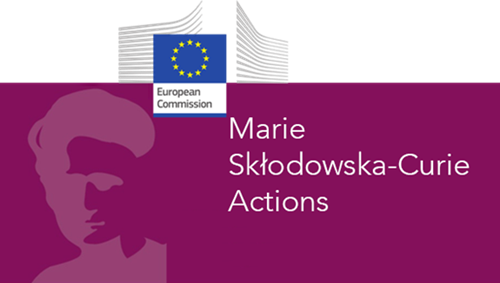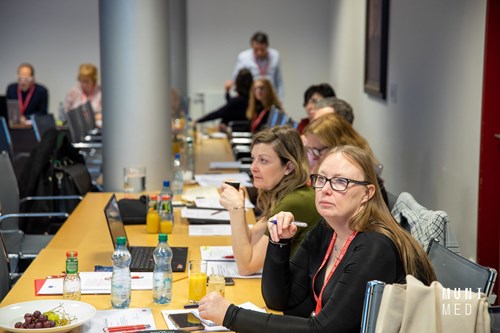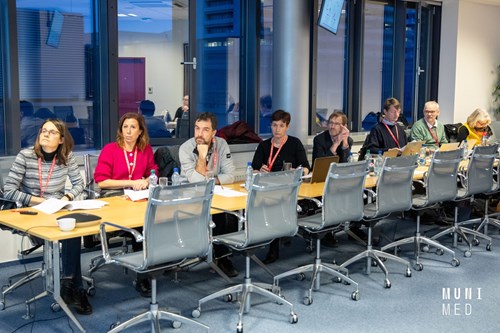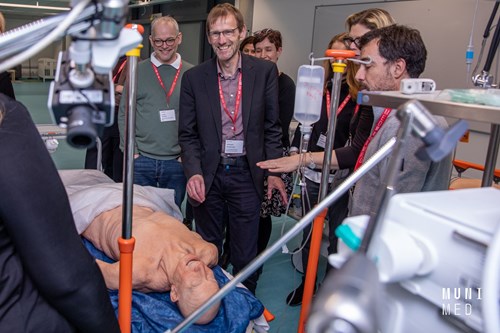The principal investigators are Suzanne Turner from the University of Cambridge and from the Faculty of Medicine Šárka Pospíšilová, MU Vice-Rector for Research and Doctoral Studies. The following institutions are involved in the project as research partners:
- Medizinische Universität Wien
- Universita degli studi di Torino
- Universita degli studi di Milano-Bicocca
- Universitätsklinikum Hamburg-Eppendorf
- Universita degli studi di Padova
- Universitätsklinikum Freiburg
Open Science, Galseq SRL, Biolution GmbH, THT biomaterials GmbH, GPOH Gemeinnuetzige GmbH, Naked Science Ltd, Pangaea Data, MLL Münchner Leukämielabor GmbH, Miltenyi Biotec, University of Cambridge, CBmed GmbH, Albert-Ludwigs-Universität Freiburg are participating in the project as Associate partners.
The project aims to prepare 10 PhD students to become European scientists with excellent career prospects and an established network of contacts. As part of their studies, the students will undertake compulsory secondments at partner institutions and also with the above-mentioned associated partners from the commercial sector.
The kick-off meeting brought together representatives from all 7 research institutions and a majority of representatives from the 12 associated partners. They presented to each other their institutions, their experiences, and the projects in which the PhD students will participate. During the Kick-off meeting the partners´ representatives visited the Simulation centre of the Faculty of Medicine, which is currently the most advanced centre in central Europe.


